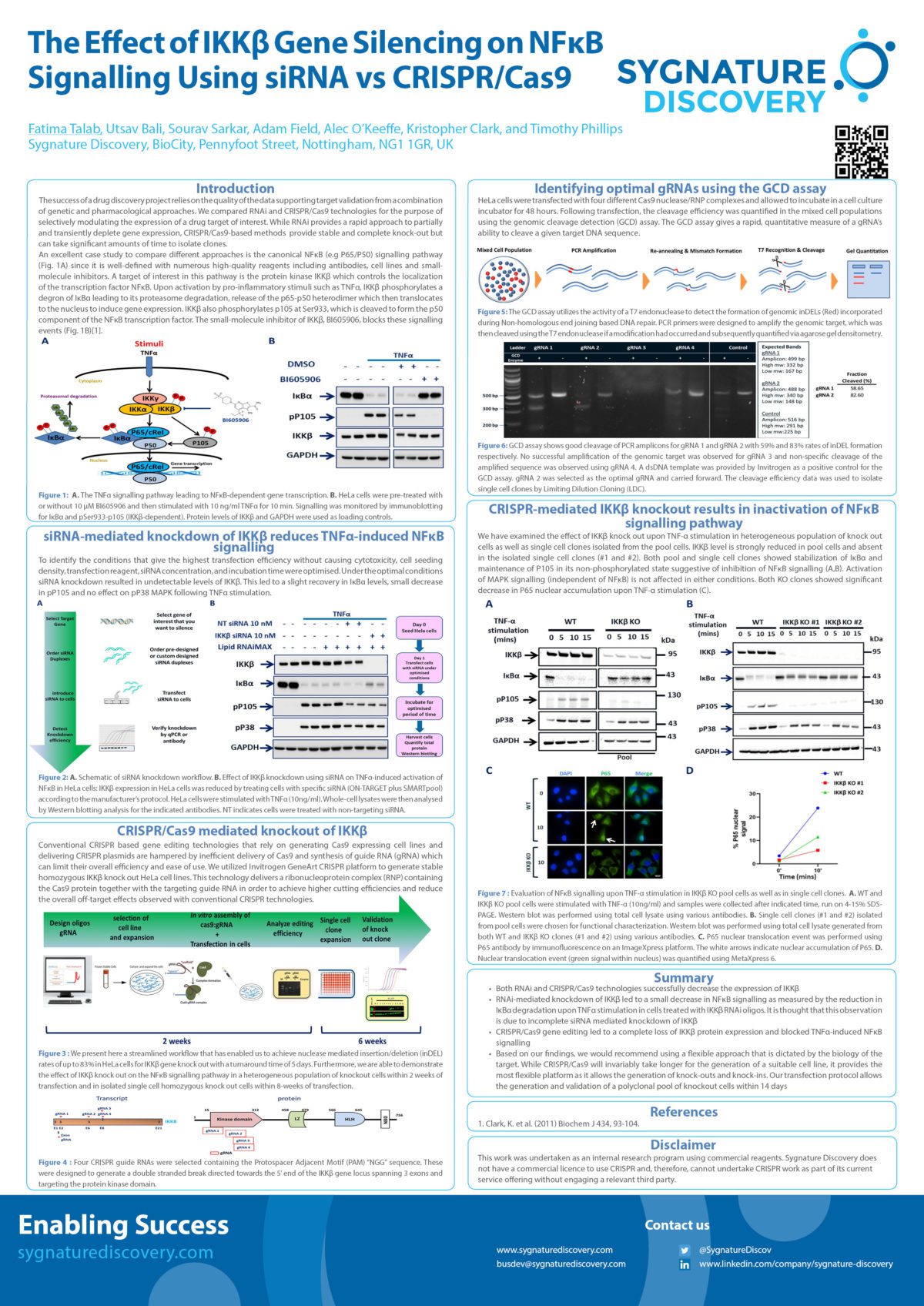Comparing RNAi and CRISPR/Cas9 for Modulating Drug Targets: A Case Study on IKKβ in NFκB Signalling Pathway
The Effect of IKKβ Gene Silencing on NFκB Signalling Using siRNA vs CRISPR/Cas9
The success of a drug discovery project relies on the quality of the data supporting target validation from a combination of genetic and pharmacological approaches. We compared RNAi and CRISPR/Cas9 technologies for the purpose of selectively modulating the expression of a drug target of interest. While RNAi provides a rapid approach to partially and transiently deplete gene expression, CRISPR/Cas9-based methods provide stable and complete knock-out but can take significant amounts of time to isolate clones.
An excellent case study to compare different approaches is the canonical NFκB (e.g P65/P50) signalling pathway since it is well-defined with numerous high-quality reagents including antibodies, cell lines and small molecule inhibitors. A target of interest in this pathway is the protein kinase IKKβ which controls the localization of the transcription factor NFκB. Upon activation by pro-inflammatory stimuli such as TNFα, IKKβ phosphorylates a degron of IκBα leading to its proteasome degradation, release of the p65-p50 heterodimer which then translocates to the nucleus to induce gene expression. IKKβ also phosphorylates p105 at Ser933, which is cleaved to form the p50 component of the NFκB transcription factor. The small-molecule inhibitor of IKKβ, BI605906, blocks these signalling events.
This work was undertaken as an internal research program using commercial reagents. Sygnature Discovery does not have a commercial licence to use CRISPR and, therefore, cannot undertake CRISPR work as part of its current service offering without engaging a relevant third party.

